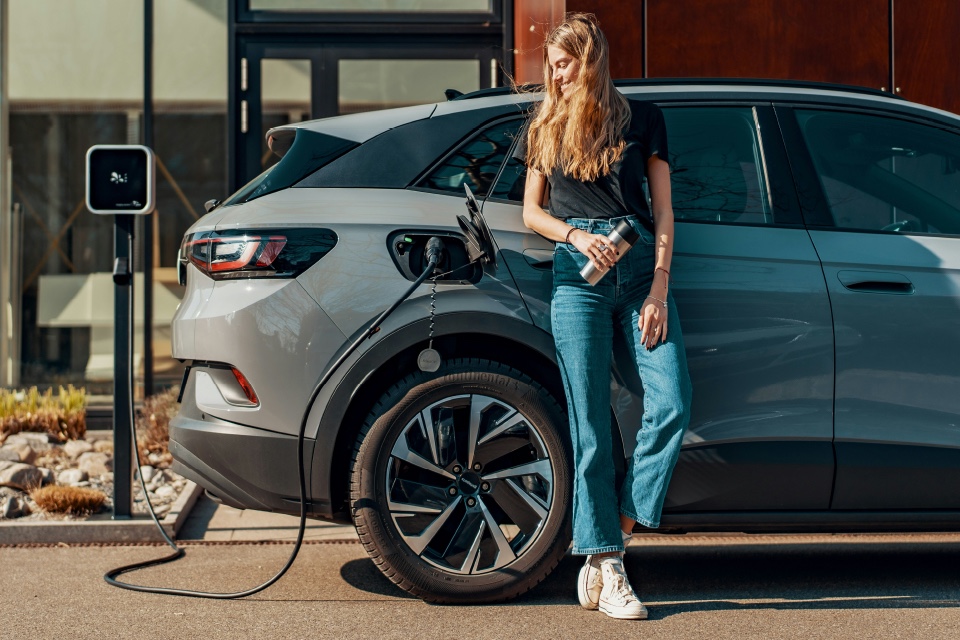A surge in the popularity of electric vehicles has led to many business owners and HR/benefits departments questioning if they need to rethink their fleet.
According to Nextgreencar.com, the number of new registrations of electric vehicles has risen from 3,500 in 2013 to 85,000 by the end of 2016, proving the electric vehicle market is a progressively strong industry.
With little battery life, a lack of charging points and expensive prices being the main fall backs in the market so far, is the market beginning to turn a corner as costs start to decline and the range and performance improves? Could a change in fleet save business owners money in the long run?
In light of recent news that many countries plan to ban diesel and petrol vehicles in the coming years, the sales of electric vehicles are higher than ever before.
According to the Society of Motor Manufacturers and Traders (SMMT), registrations of new electric vehicles hit a 12-year high in January this year, reaching a record 4.6% share in UK new car registrations, up from 3.6% in November 2016.
Globally, the electric market has accelerated past the two million mark, with China, USA and Europe accounting for more than 90% of the electric vehicle sales in 2016. It’s now expected to continue to rise following the news that Norway has a plan in action to eliminate petrol and diesel cars by 2025, and Germany by 2030.
Following in the footsteps of some of their neighbouring countries, the UK is planning to ban the sales of all petrol and diesel-powered cars and vans by 2040. This would suggest that the UK is moving towards an all-electric vehicle nation.
Could electric cars soon dominate our roads? Recent figures and news would suggest so. Here, VW dealership, Vindis Group explore how electric-powered engines are helping CO2 emissions and what the future looks like for the market.
Reducing emissions and road tax
As countries move away from air pollution by planning to ban diesel and petrol vehicles, it’s no surprise that people are moving towards electric vehicles as a cleaner alternative. Electric cars have the potential to reduce carbon emissions in the atmosphere, depending on the type of electricity that charges the battery. They are only as green as their ‘juice’ is. Batteries which are powered by coal actually do nothing to cut emissions – it’s the natural gas electricity power that helps to reduce CO2 emissions. Natural gas electricity can result in less than half of the total emissions of the best combustion vehicle, including the manufacturing processes.
The current EV landscape
Sales of electric vehicles haven’t always been successful. In 2013, just 3,500 new electric vehicles were registered. However, the market has shown promising progression in the past few years. One indication of the electric vehicle growth might be seen in the huge shift away from diesels that’s underway across Europe, where its market share has fallen by 3.6% over the last year.
As consumers move away from diesel and petrol, electric is on the up. Back in 2014, on average around 500 electric vehicles were registered per month – compared with 2017, where in the first seven months of the year, almost 26,000 cars have been registered, averaging just over 3,700 cars per month. It’s a dramatic increase on 2014’s figures.
How is the future looking?
The trend towards electrical vehicle purchases looks set to continue. If plans to eliminate petrol and diesel cars in the UK by 2040 are anything to go by, cities of electric cars will be cleaner and quieter than our present roads.
There are some aspects of the industry that must be addressed before it can be successful. This means lighter batteries with longer amounts of charges and quicker charging periods being required across all models. Thankfully, some models with these points in mind have already started to appear on the market and global investment should ensure the progress continues.
Car brands have recognised the changes in the industry and are adapting accordingly. BMW and MINI revealed new electric plans in July, confirming the MINI EV. Mercedes have also announced their plan to enter Formula E, with the likes of Audi, BMW, Porsche and Jaguar as they attempt an all-electric racing series too.
Countries ahead of the game include Norway and Germany, who are well on their way to reaching their reduced air pollution targets. If plans are to go ahead, petrol and diesel vehicles will be taken off sale from 2040, meaning electric-only vehicles will be all that are sold on the market.
This is something businesses need to keep in mind when updating their fleet within the years approaching 2040.





